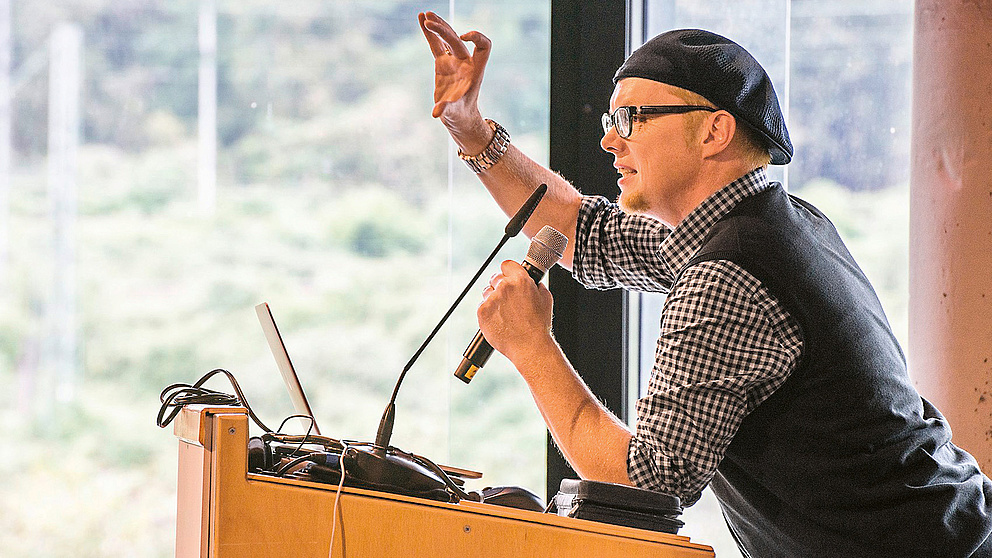Jump to the content
- {{#headlines}}
- {{title}} {{/headlines}}

HEKTOR HAARKÖTTER
Professor Dr Hektor Haarkötter teaches communication science with a focus on political communication at Hochschule Bonn- Rhein-Sieg, University of Applied Sciences. A former journalist and Humboldt host, he is editor and author of several scientific books such as Shitstorms und andere Nettigkeiten. Über die Grenzen der Kommunikation in Social Media (2016) or, most recently, Notizzettel. Denken und Schreiben im 21. Jahrhundert.
KOSMOS: Mr Haarkötter, did shitstorms exist even before social media were invented?
HEKTOR HAARKÖTTER: They do actually seem to be a feature of the digital world. But they predate Facebook, Twitter and Co.: in mailing lists, for instance, you used to get brutal forms of confrontation that proceeded in cascades. The cascade element is an important characteristic of shitstorms – one word generates another, and the mood escalates at an incredible rate.
Your book about shitstorms appeared in 2016. Has the phenomenon changed since then? Have shitstorms become more frequent or radical?
It’s difficult to say because there isn’t even a definition of when something turns into a shitstorm – is it 50 negative comments or does it have to be nearer 500,000? What I personally think has changed today is that shitstorms are increasingly calculated by professional actors – actors who are out to poison communication from the word go. Trolls, tabloids but also populist parties use the tactic to try and generate as much attention for their topic as possible. But the amazing thing is, you can’t calculate it. Sometimes you post something that you think is controversial and you don’t get a single reaction. And another time, you write something ostensibly harmless, but it’s the very thing that gets someone’s goat.
The digital channels lend themselves to communicating science.
What lessons do you draw for science – not to communicate on social media at all?
On the contrary: science communication is more important today than ever. And these digital channels are a great way of doing it.
Can you recommend any recipes to help researchers avoid shitstorms?
If my entire energies are directed at not causing a shitstorm, I should restrict myself to using Latin or Ancient Greek on social media. No, but seriously, I would recommend communicating as neutrally as possible and trying to avoid polarisation – just as the laws of good behaviour teach us.
And then what should you do if you get caught up in a shitstorm? Keep quiet and wait until the storm has passed?
No, on no account! A shitstorm can have dire consequences – legally, professionally and privately. You should definitely try to save the situation, by apologising if you have said something that has offended someone. And, in any case, with an open explanation – why you judged the way you did, for example. When it comes to science communication, the best thing is to explain your scientific analysis again. Usually, you will then reach the members of the public who didn’t actually intend to misunderstand you.

